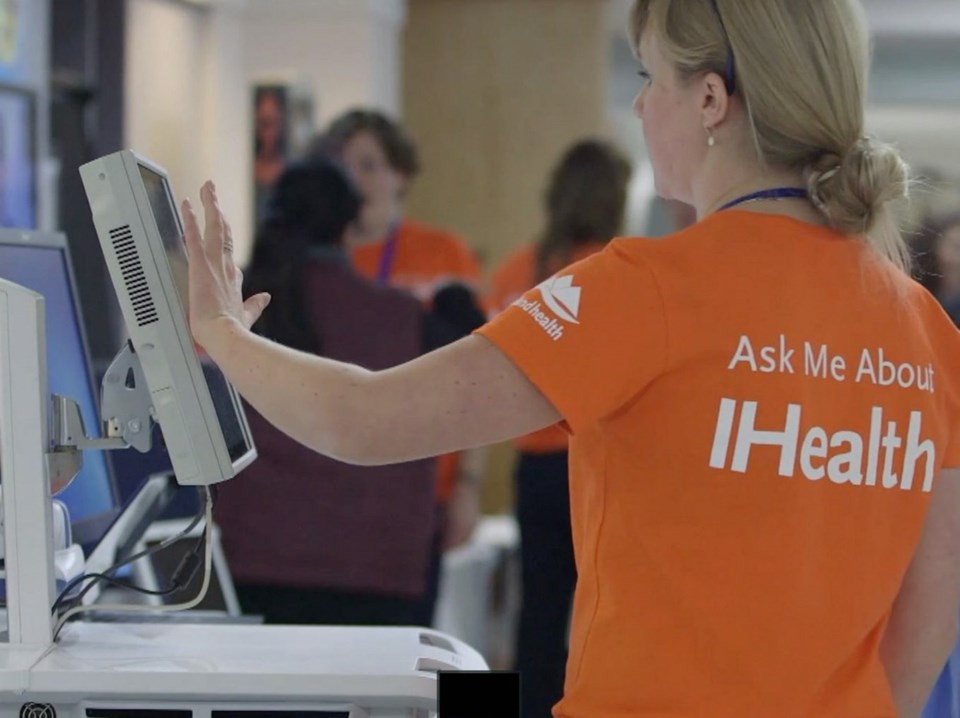Island Health will not delay the implementation of a $174-million electronic health-record system in a Nanaimo hospital, but will add extra resources as physicians continue to sound warnings about fatigue and a possible catastrophic incident.
“Moving to an electronic system should enhance the care we provide, rather than jeopardize it,” says a report by the newly formed Medical Staff Association, representing about 250 physicians with privileges at Nanaimo Regional General Hospital.
“We do not want a catastrophic event to occur in order to have our concerns heard,” says the report, obtained by the Times Colonist.
“We do not feel that it is ethical to put patients at risk using a system that makes it difficult to ‘do the right thing’ and much easier to make a significant error.”
Sixty-one Medical Staff Association members voted unanimously last week to back a “no confidence” motion on the system’s electronic ordering system, which allows physicians to order diagnostic tests or drugs and enter patient instructions electronically.
They are calling for a return to paper orders while the system is independently reviewed.
Physicians claim the software is cancelling, overriding, changing or doubling up some drug orders and critical physician instructions.
Island Health CEO Brendan Carr said the health authority’s board members, who met Thursday in Duncan, “quite seriously” considered the request to remove the ordering module, but decided against it.
The board, which is appointed by the province, has directed the health authority to “persevere” through the implementation of the iHealth system, Carr said.
But it also wants several changes, he said, including the addition of resources and ongoing refinements, based on physician concerns and recommendations from a recent internal investigation.
“We are very confident the system is doing what it was designed to do,” Carr said.
“Equally we understand, though, if physicians are not really confident in the use of the system, that can lead to concerns the system could do things that are not the best for our patients — not because the system doesn’t work, but because they are not using the system perfectly.”
Island Health has a 10-year, $50-million deal with software developer Cerner Corp. of Kansas City, Missouri, for an electronic health record software system. Island Health will spend an additional $124 million for hardware and training.
The system launched March 19 at the Nanaimo hospital, Dufferin Place residential care centre in Nanaimo and Oceanside Health Centre in Parksville.
It is the first in B.C. to connect most of a patient’s acute-care and diagnostic health-care services through one computerized medical record.
Nine weeks into the launch, emergency room and intensive care unit doctors reverted to paper orders and instructions out of concern for patient safety. Internists and others want to do the same.
Once the system is stabilized at the three Nanaimo and Parksville sites, Island Health plans to implement it across the Island, the health authority has said.
In its report, the Medical Staff Association says it is committed to an electronic health record system, but that there has been “a multitude of physician-reported major safety issues from every department that deals with acute patient care.”
It says a recent investigation of physician complaints by the Health Authority Medical Advisory Committee — which includes senior physician leaders and provides advice to the Island Health board of directors and its chief executive officer — notes there has been no catastrophic adverse event due to the new system.
“That this has not occurred is only due to extreme diligence and dedication of physicians and other allied health-care providers at this site to double and triple check that orders have been carried out as intended,” says the Medical Staff Association report.
The Medical Staff Association also told Island Health board members it was already “in crisis” due to “marked under resourcing” before the system’s implementation, which has “heavily taxed the [Nanaimo Regional General Hospital] physician group,” and that doctors distrust the system.
“We need to feel confident that our friends and family will be safely cared for should they need to receive health care at our hospital,” the report says.
“We ask you the board what price is willing to be paid to continue a system whose benefits are as yet theoretical but whose side-effects are very real.”
Carr said the health authority acknowledges the “the implementation process has been extremely difficult.”
“And we acknowledge the conditions on the site have been busy — it doesn’t have some of the same supports that our facilities in the south would have, and that has made it even more challenging,” he said.
To that end, he said, the Island Health board adopted the recommendations in the Health Authority Medical Advisory Committee report and has directed the health authority to:
• Address fatigue in clinical staff and medical professionals.
• Adjust resources to alleviate workload burden.
• Improve trust in the electronic health record and associated clinical care processes.
• Work collaboratively with clinicians and medical staff to evaluate improvements in the electronic health record for quality and safe patient care.
“It is true the system we are using, it does slow people down,” Carr said, adding that physicians aren’t able to see as many patients as a result.
“We understand that’s not good for patient care and it’s not good for physicians,” he said. “We’re very motivated to do what we can to support the physicians to try to change that either by adding more resources or looking at other mechanisms.”



